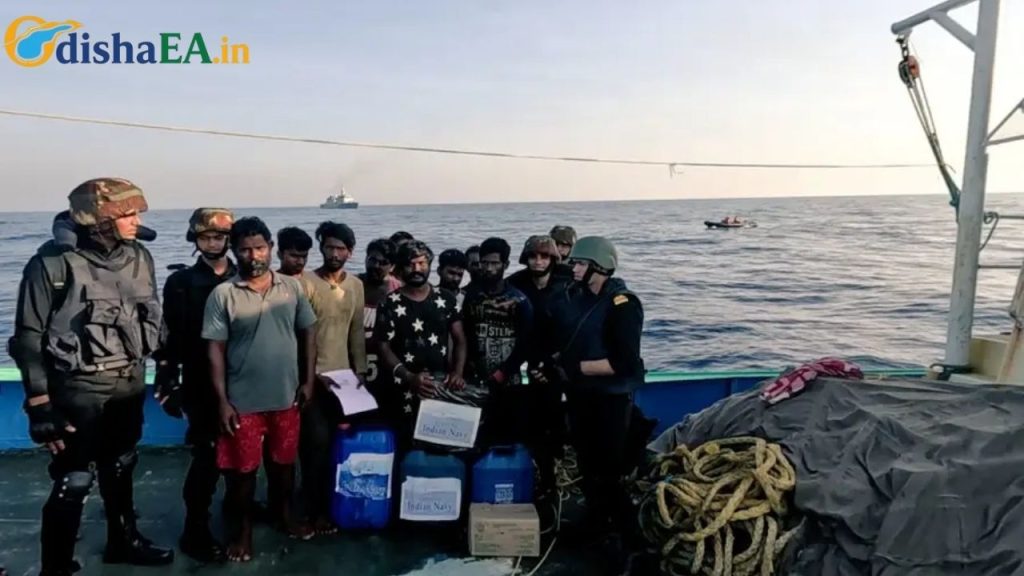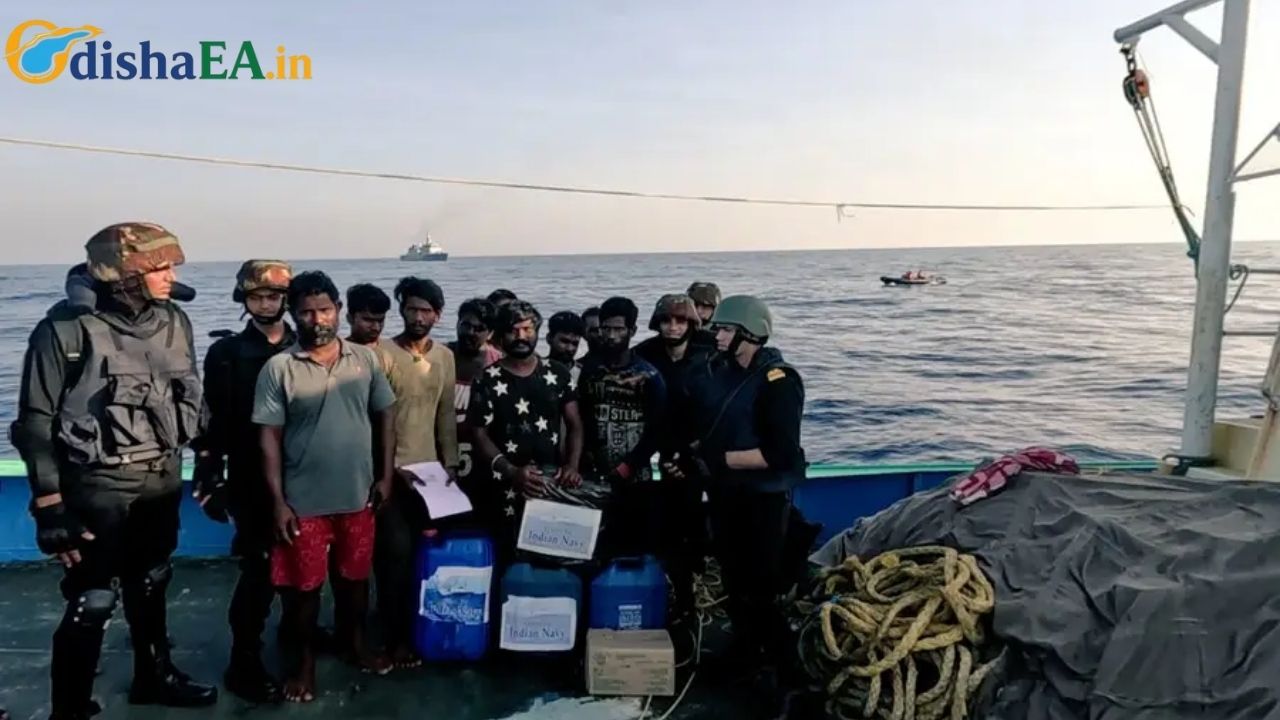If you’ve ever watched a survival movie like Cast Away or heard tales of folks lost at sea, you know the ocean isn’t a place you want to mess with. But for fishermen in Odisha, India, the sea isn’t just a backdrop for adventure—it’s their workplace, their livelihood, and sometimes, their battleground. Recently, four fishermen from Odisha were stranded at sea for 48 hours, and their incredible fight to stay alive has everyone talking.

This story isn’t just about survival. It’s about grit, teamwork, and how ordinary people can face extraordinary odds. It also highlights bigger questions: How safe are small-scale fishermen in developing nations? What lessons can the rest of us—whether we’re professionals, parents, or weekend sailors—take away from this?
Survival Story of 4 Odisha Fishermen
| Point | Details |
|---|---|
| Incident | Four fishermen from Odisha stranded at sea for 48 hours after their boat drifted away. |
| Location | Bay of Bengal, off the coast of Odisha, India. |
| Rescue Efforts | Joint operation by Indian Coast Guard, Marine Police, and local agencies. |
| Outcome | One fisherman rescued near Digha, West Bengal; search operations continued for the others. |
| Risk Factors | Mechanical failure, rough weather, lack of safety gear. |
| Global Relevance | Highlights ongoing dangers faced by fishermen worldwide. |
| Official Source | Indian Coast Guard |
The story of the four Odisha fishermen stranded at sea for 48 hours is more than just a survival tale—it’s a reminder of the power of human resilience, the risks of overlooked professions, and the lessons nature teaches us the hard way. Whether you’re a kid learning about survival in school or a CEO looking for leadership lessons, this story hits home.
The Day Everything Went Wrong
Imagine heading out on a routine workday, tossing your nets into the water, and expecting to be back home in time for lunch. That was the plan for the fishermen from Kankadapal village in Balasore district. But the ocean had different ideas.

Reports say their boat drifted off course and became stranded. Rough currents, failing equipment, and unpredictable weather piled on. Within hours, what should have been a normal fishing trip turned into a fight for survival.
Survival Mode: What They Did Right
Here’s the crazy part—these men didn’t panic. According to survival experts, the first rule when stranded is “don’t freak out.” Panic burns energy, clouds judgment, and can literally sink you.
The Odisha fishermen stuck together, conserved their energy, and used whatever resources they had onboard. Experts often talk about the “Rule of Threes” in survival:
- 3 minutes without air
- 3 hours without shelter in extreme conditions
- 3 days without water
- 3 weeks without food
The fishermen knew water was the key. In hot, salty conditions, dehydration can take you out faster than hunger. Staying calm and working together gave them a fighting chance until rescuers spotted them.
Why This Story Matters Beyond Odisha
Now, you might be thinking, “Cool story, but I live in Kansas—why should I care?” Here’s the deal: stories like this connect to bigger global issues.
- Fishing Industry Dangers – According to the International Labour Organization (ILO), fishing is one of the most dangerous jobs in the world. Every year, thousands of fishermen lose their lives at sea (ILO Report).
- Climate Change & Weather – Rising sea temperatures and stronger cyclones in the Bay of Bengal mean fishermen face harsher conditions than ever before.
- Lack of Safety Gear – Many small boats in developing regions don’t have life jackets, GPS, or emergency beacons. Compare that to the U.S. Coast Guard regulations, where even recreational boaters are required to carry life vests.
This isn’t just about four men—it’s about a global workforce often left behind in safety discussions.
Lessons for Everyone: What We Can Learn
You don’t need to be a fisherman to take away practical advice from this ordeal. Here’s how this survival story translates into real-world tips for anyone:
Always Respect Nature
Whether you’re fishing, hiking, or driving through a snowstorm—nature doesn’t care about your schedule. Always check weather forecasts, carry emergency supplies, and plan for the unexpected.
Know Your Safety Gear
In the U.S., the Coast Guard stresses carrying life jackets, flares, and communication devices (USCG Safety Tips). The Odisha fishermen didn’t have all that, but imagine how much faster they could’ve been rescued if they did.
Stay Calm and Work as a Team
Panic kills. Whether it’s in the office, on the road, or stranded at sea, teamwork and clear thinking make survival possible.
Step-by-Step Survival Guide (If You’re Ever Stranded at Sea)
Here’s a quick breakdown, simplified so even a middle schooler can understand:
- Don’t Panic – Slow breathing keeps your brain sharp.
- Signal for Help – Shiny objects, bright clothing, or even waving your arms can attract attention.
- Save Water – Never drink seawater. Collect rainwater or ration what you have.
- Stay Together – A group is easier to spot than a single person.
- Use What You Have – Nets, buckets, even shoes can be repurposed as survival tools.
This is exactly what made the Odisha fishermen’s 48-hour ordeal end in at least one rescue.
Odisha Braces for Heavy Rains as Low-Pressure Area Stays Over Gangetic West Bengal
Odisha Fishermen Struggle as Trump’s Tariff Raise Hits Seafood Exports
Odisha’s Bhitarkanika National Park Welcomes Visitors Again Starting August 1
FAQs
Q1: How dangerous is fishing compared to other jobs?
Fishing ranks among the top 10 deadliest professions worldwide according to the International Labour Organization. Risks include storms, equipment failure, and drowning.
Q2: How long can someone survive at sea without food or water?
On average, about 3 days without water and up to 3 weeks without food. Factors like heat, health, and hydration levels matter.
Q3: What’s the role of the Indian Coast Guard in rescues like this?
They coordinate with local police, marine authorities, and even drones for aerial surveillance. Their fast response is often the difference between life and death.
Q4: Could this have been prevented?
Yes. With life jackets, GPS trackers, and distress beacons, chances of survival and quicker rescues increase dramatically.





